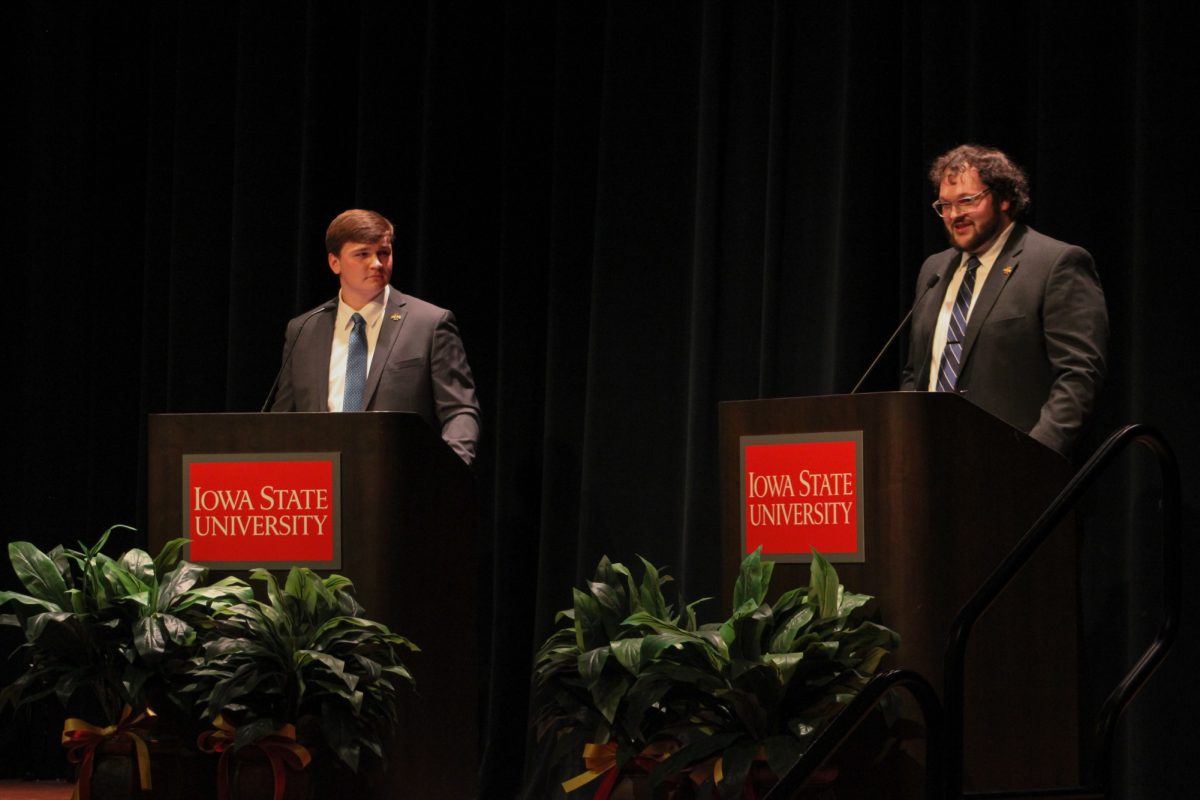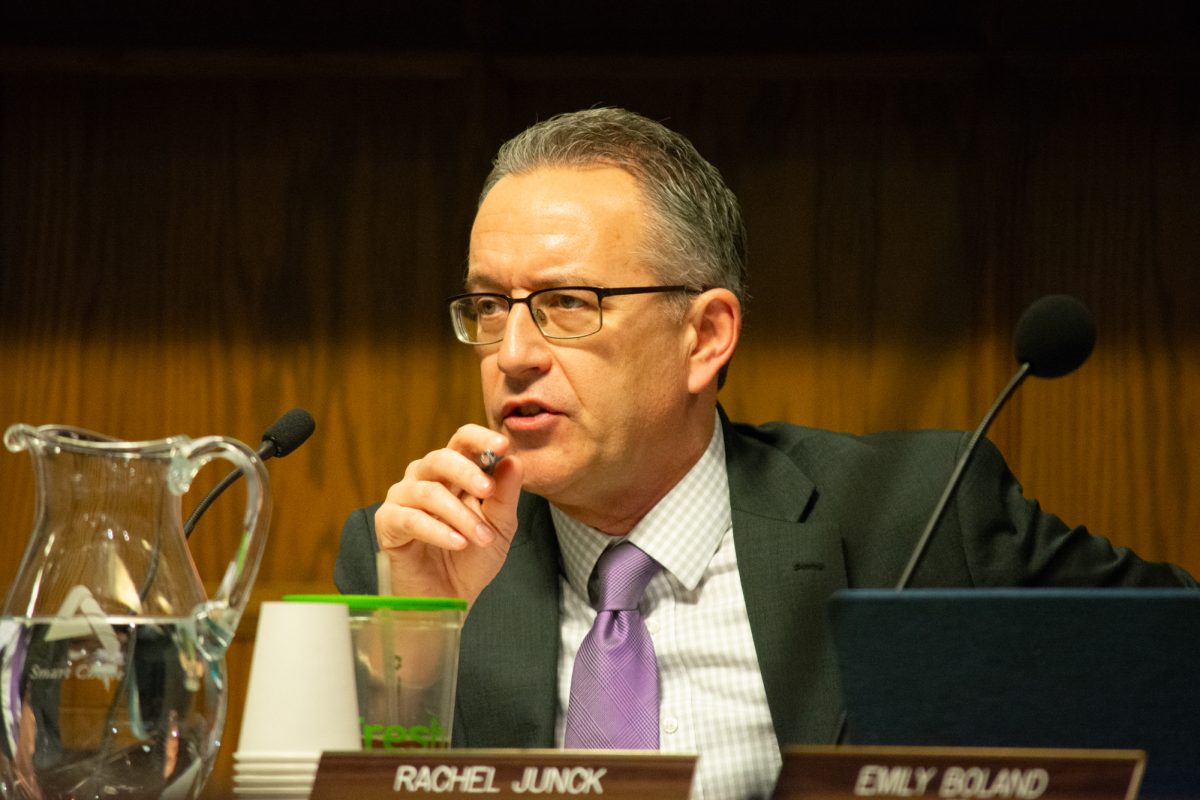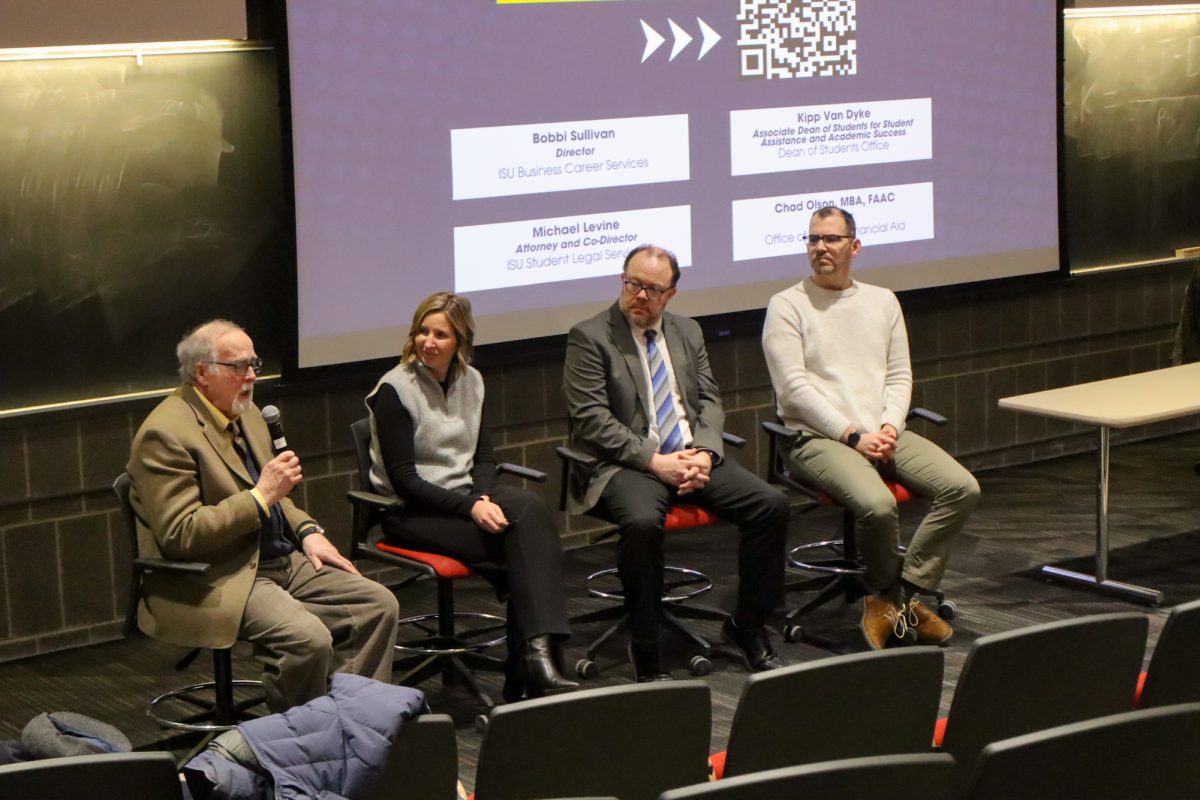Prof’s work may help space-colonization trips
February 23, 2001
Current developments in water technology at Iowa State could be used in future long-term space colonization missions or trips to Mars, an ISU professor said.Marc Porter, professor of chemistry, has been working with NASA for more than three years on a miniature water treatment plant to provide pure water for space travelers. He said growth of microorganisms in the water is a problem for extended flights.Porter said he and other researchers will ride along as their research is tested in March on the “vomit comet,” a micro-gravity flight which produces zero-gravity conditions. The flight will give researchers important insight about how the device will operate in outer space, he said.Matteo Arena, visiting scientist in the Microanalytical Instrumentation Center, is also working on the project and said scientists are working to use color to test water sterilization.First, iodine is added to the water, and the water is put through polymeric membranes, he said. The iodine causes a reaction, producing color, he said, which can be analyzed to determine the purity of the water.Porter said he and his team are trying to “make things as generic as possible so that when the details come into focus, we can make some changes and be ready to go.”The chromatograph, an instrument used to indicate color change, also needs to be modified to a smaller size, he said. The machine is currently the size of three personal computers, and Porter said he hopes to make it handheld device. “It’s very important that the equipment is portable, reliable and automated, so that the astronauts won’t have any problems using it,” he said.Although the research doesn’t have any immediate uses, it can be sold commercially, Arena said. He said he’s considering getting in touch with chemical companies selling water-purification kits.Porter said he’s also looking at the bigger picture. “We’re working on developing a variety of techniques that will hopefully fly with people on the next trip to Mars,” he said.






